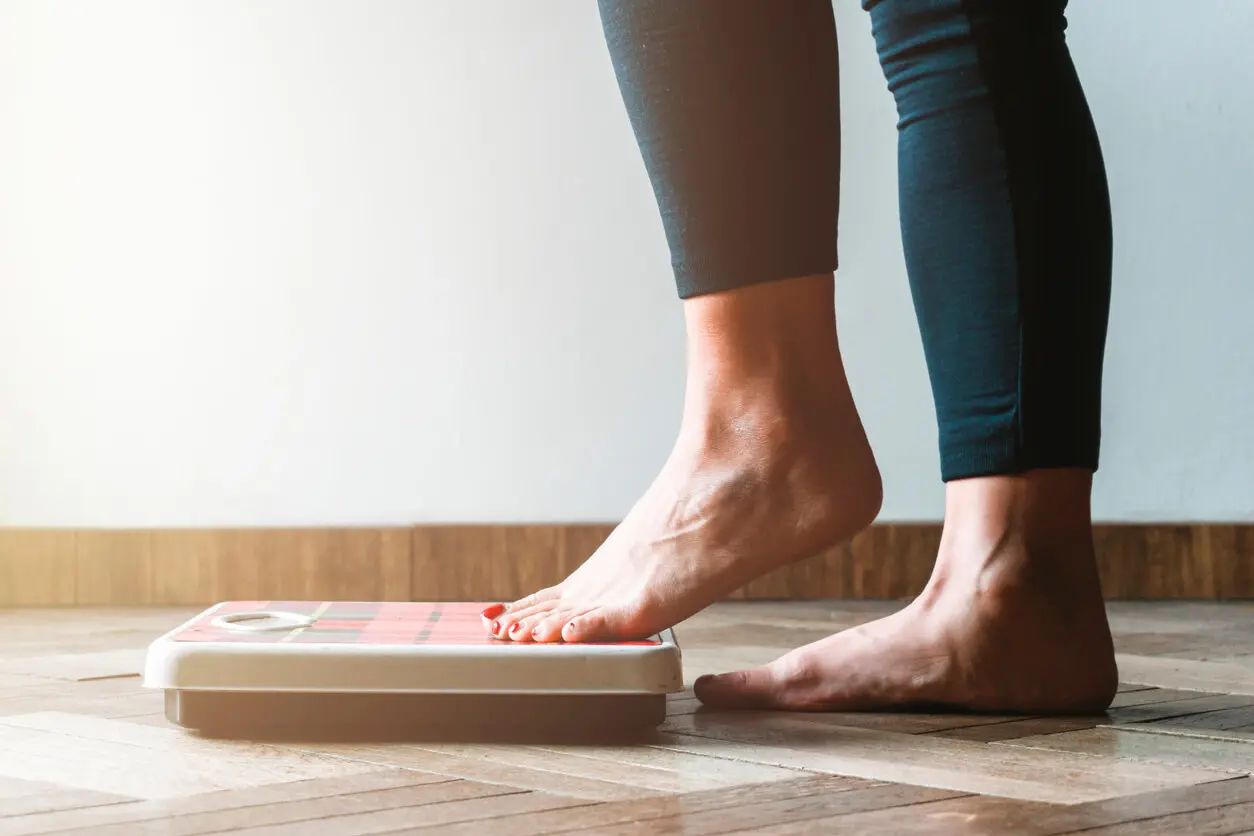Ozempic Constipation: Why It Happens and How To Find Relief
Key Takeaways
- Constipation is a common side effect associated with Ozempic and other GLP-1 medications like Wegovy and Rybelsus
- In Ozempic clinical trials, constipation tended to subside by the 7th week, though it may last longer for some
- Drinking more water, increasing your fiber intake, exercising and reducing your Ozempic dosage may help relieve constipation
- Consider seeking medical advice if your constipation doesn’t respond to lifestyle changes and/or OTC laxatives or stool softeners
Constipation is a common Ozempic side effect. Here's how to find relief.
Ozempic (semaglutide)is a popular prescription medication that belongs to a class of medications known as glucagon-like peptide-1s (GLP-1s). Ozempic is FDA-approved to help people with type 2 diabetes manage their blood sugar levels. It can also treat chronic kidney disease in diabetic patients. Sometimes, Ozempic is prescribed off-label for weight loss.
One of the most common side effects of Ozempic is constipation. Constipation occurs when stool is moving too slowly through your bowels, causing strained bowel movements and leaving you feeling bloated, gassy and uncomfortable. Read on to learn about how to treat Ozempic constipation, how common it is and why it happens.
How to treat Ozempic constipation
Constipation can leave you feeling bloated, gassy and uncomfortable. Luckily, there are both simple lifestyle adjustments and over-the-counter laxatives and stool softeners that can provide relief.
Easy-to-implement changes for constipation relief
Even the smallest habit changes and treatment adjustments can make a big difference when it comes to constipation. Staying hydrated, getting more fiber and staying active can all help with relief. Here are several adjustments that you can make:
- Drink plenty of water: The National Academy of Medicine’s hydration guidelines suggest that adult women should drink about 9 cups of water (about 72oz) per day, while adult men should drink around 13 cups per day (about 104 oz). You should also increase your fluid intake if you’re working out or if you’re in a high-temperature environment.
- Increase your fiber intake: Fresh fruits, vegetables, whole grains and legumes are great sources of fiber, which can help relieve and prevent constipation, bloating and other GI issues. Some particularly high-fiber foods include prunes, raspberries, broccoli, lentils and whole-grain pasta. Fiber supplements like psyllium (Metamucil) can also help relieve constipation.
- Keep your body moving: Working out can help improve gut movement and strengthen pelvic floor muscles, which can help pass food and waste through your digestive system. Consider yoga, cardio, or another activity that helps you stay active.
- Start at a lower dose of Ozempic: Data appears to suggest that constipation is more frequent when taking higher doses of semaglutide. Starting at a lower dose and giving your body time to adjust to higher doses may help to prevent constipation.
Over-the-counter medications for constipation
OTC laxatives and stool softeners can offer quick, affordable relief from constipation. However, OTC laxatives aren’t for long-term use. Your body can become dependent on these medications, which can cause chronic constipation. You should stop taking the laxatives as soon as you have a bowel movement, and avoid taking laxatives for more than a week at a time. Options for short-term OTC laxatives and stool softeners include:
- Bisacodyl (Dulcolax): Bisacodyl is a laxative that stimulates the muscles in your intestines to help you pass bowel movements.
- Docusate (Colace): Docusate is a stool softener. It works by helping your gut absorb more water, making the stool softer and easier to pass.
- Magnesium hydroxide (Phillips’ Milk of Magnesia): Magnesium hydroxide is a laxative that works by helping your intestines retain more water, which in turn softens your stools.
- Polyethylene glycol (Miralax):This laxative helps absorb water into your stool, which softens it and makes it easier to pass.
- Sennosides (Senna): Sennosides are a type of laxative that stimulate the nerve endings in your colon muscles, causing them to contract and help push stool through your colon.
Prescription options for constipation from Ozempic
If your constipation still isn’t improving with lifestyle adjustments or OTC solutions, you may have a more severe case of constipation. In these situations, your healthcare provider may prescribe prescription medication along with other treatments. Prescription medications for constipation include:
- Lactulose (Cholac): Lactulose is a laxative that relieves constipation by drawing water into your colon, which helps to soften hard, dry stools.
- Linaclotide (Linzess): Linaclotide is a medication for constipation that helps move food through your intestines more quickly.
- Lubiprostone (Amitiza): This laxative increases the amount of fluid in the gut, which helps to soften stools.
- Prucalopride (Motegrity): Prucalopride works by stimulating certain receptors in the gut, helping to increase bowel movements.
If you’re prescribed laxatives, be sure to discuss risks and drug interactions with your provider. Consistent use of prescription laxatives can cause dehydration, dependency and other GI side effects like abdominal pain and bloating.
How common is Ozempic constipation?
During Ozempic clinical trials for type 2 diabetes treatment, constipation was a common side effect reported by 3-5% of participants. Research also shows that constipation may be more common for people taking Ozempic for weight loss. In several studies, constipation was experienced by about 24% of participants who were taking semaglutide for obesity.
Other research suggests that gastrointestinal (GI) side effects from Ozempic may depend on the dosage. In other words, the higher the dose of semaglutide, the more it impacts your stomach function - and the higher the chances of GI side effects like nausea, diarrhea or constipation.
More research is needed to determine how long constipation lasts for Ozempic users. One study found that constipation persisted for almost 7 weeks (47 days) on average, while some study participants continued to experience constipation even after 10 weeks.
Why does Ozempic cause constipation?
Semaglutide, the active ingredient in Ozempic, slows down your stomach’s ability to push food through your digestive system (gastric emptying). This mechanism helps you to feel full for a longer period of time and avoid blood sugar spikes.
However, that same mechanism may also cause constipation. When you feel full, you tend to drink less water. As a result, your body absorbs fluids from the food and waste in your intestines to stay hydrated. This can dry out your stools, which makes them harder and painful to pass - and the longer that the waste stays in your body, the more constipated you feel.
Feeling full may also mean that you eat less food, which can prevent you from getting enough fiber in your diet. Fiber is an important carbohydrate that helps add bulk to your stools and also softens them, making them easier to pass.
When to see a doctor about Ozempic constipation
If your constipation has persisted for more than two weeks and isn’t responding to lifestyle changes or OTC treatments, it may be time to talk to a healthcare provider for guidance.
You should also seek medical advice immediately if you notice any of the following symptoms, as they could indicate rare but serious side effects associated with Ozempic, such as stomach paralysis (gastroparesis) or an intestinal blockage:
- Severe abdominal pain or cramping
- Significant pain during bowel movements
- Blood in your stool
- Persistent nausea and vomiting
- Vomit that contains blood or that looks like coffee grounds
The Food and Drug Administration (FDA) has also noted several other possible side effects and risks associated with Ozempic, including hypoglycemia (low blood sugar), worsening of diabetic retinopathy and pancreatitis. Get in touch with your medical provider right away if you notice vision changes, severe pain in the upper abdomen, paleness or shakiness, or a racing heartbeat while on Ozempic.
How Sesame can help
Whether you're taking Ozempic for diabetes management or weight loss, Sesame offers comprehensive support to address your health needs, including constipation relief and weight management.
Beyond addressing Ozempic-related side effects, Sesame’s affordable and comprehensive online weight loss program can help you get started on your weight loss journey. Success by Sesame is a month-to-month subscription that includes a video consultation with a weight loss doctor or specialist of your choice, access to prescriptions for GLP- medication (if appropriate), unlimited messaging with your provider, ongoing support, and more.
Weight loss results aren’t just something you see - they’re something you feel. Data shows that maintaining a healthy weight can have significant health benefits, such as a lower risk of heart disease, improved mobility, better sleep, and enhanced overall well-being. Get started on your weight loss journey today. Note that all prescriptions are at the discretion of your healthcare provider.









